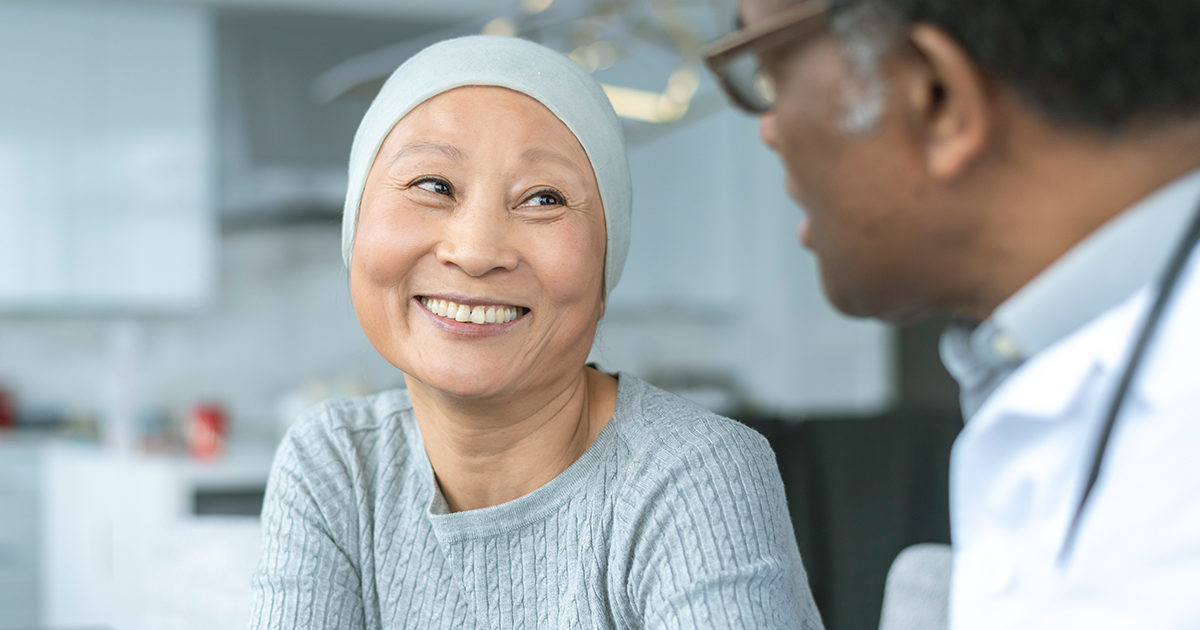About Anal Cancer
Anal cancer begins when healthy cells in or on the anus change and grow out of control, forming a mass called a tumor. Anal cancer arises between the outer part of the anus and the lower part of the rectum and often causes symptoms such as rectal bleeding and anal pain. Most anal cancers start from the mucosa or the inner lining of the anal canal. Some changes in anal mucosa, known as dysplasia, are harmless at first, but might later develop into cancer.
Since anal cancer is an uncommon type of cancer, affecting approximately 0.2 percent of people at some point during their lifetime, it is best managed by gastrointestinal cancer specialists with a focus on these tumors
Types of Anal Cancer
Anal cancers are often divided into two groups, which are sometimes treated differently: cancers of the anal canal (above the anal verge) and cancers of the anal margin (below the anal verge).
Common types of anal cancer include:
- Squamous cell carcinoma: The most common type of anal cancer, originating in the outer lining of the anal canal
- Cloacogenic carcinomas: A type of squamous cell cancer that develops in the middle area of the anal canal and accounts for about 25% of all anal cancers.
Other anal cancers include:
- Adenocarcinoma: Cancer arising from the glands that make mucous located under the anal lining
- Basal cell carcinoma: A type of skin cancer that can appear in the perianal (around the anus) skin
Symptoms of Anal Cancer:
- A change in bowel habits
- A lump near the anus
- Bleeding from the anus or rectum
- Itching or discharge from the anus
- Pain or pressure in the area around the anus
Risk Factors for Anal Cancer
Certain people are at greater risk of developing anal cancer.
Risk factors for anal cancer may include:
- Age: Anal cancer can occur at any age, but typically affects those over the age of 50.
- Health history: A history of cancer, human papillomavirus (HPV infection), and drugs or health conditions that suppress the immune system are all linked to anal cancer.
- Personal history: Anal cancer is more common among individuals with many sexual partners, those who engage in receptive anal sex, and those who smoke.
Treating Anal Cancer at UT Health Austin
Treatment requires accurate diagnosis and a care plan tailored to the specific type of tumor, the tumor’s location, and the overall needs of the patient. The different behavior of different tumor types helps drive decisions about treatment, which may include combinations of surgery, radiation therapy, and chemotherapy.
Care Team Approach
At UT Health Austin, we take a multidisciplinary approach to your care. This means you will benefit from the expertise of multiple specialists across a variety of disciplines. Your care team will include surgical oncologists, physical therapists, dietitians, social workers, and more who work together to help you get back to the things in your life that matter most to you.
We also collaborate with our colleagues at the Dell Medical School and The University of Texas at Austin to utilize the latest research, diagnostic, and treatment techniques, allowing us to identify and utilize new therapies to improve cancer treatment. We are committed to communicating and coordinating your care with your other healthcare providers to ensure that we are providing you with comprehensive, whole-person care.
Learn More About Your Care Team

Surgical Oncology
Health Transformation Building, 8th Floor
1601 Trinity Street, Bldg. A, Austin, TX 78712
1-833-UT-CARES (1-833-882-2737)
Get Directions